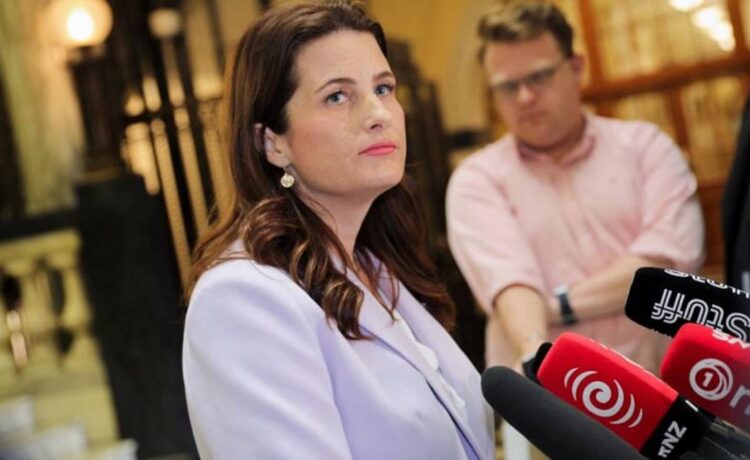Finance Minister Nicola Willis unveiled $7.4 billion in cuts and savings in her mini-Budget today, part of a drive to beat the books into shape as a gloomy economy weighs on the Government’s finances.
That figure does not include a programme of $1.5b of annual public service “savings” announced today, equating to $6b in cuts to baselines over the forecast period. The $1.5b in savings includes $500m of savings per year announced by Labour in August, but not yet implemented.
It corresponds to the $2.3b of “bureaucracy savings” included in National’s pre-election fiscal plan, and its cuts to consultant spending, costed at $1.6b in the fiscal plan. Willis said Treasury’s Half-Year Economic and Fiscal Update, released with the Budget “lays bare the extent of Labour’s economic and fiscal vandalism”, and promised that an “economic clean up” would begin today with the mini-Budget.
The forecasts are indeed gloomy: a weaker economy since the last update in September has seen the tax take fall by $1.6b over the forecast period, while expenses have grown, mainly thanks to more borrowing and higher interest costs.
The Government bond programme has been extended by $7b since the last update in September. The country is expected to enter a real GDP per capita recession, with GPD per head of population going backwards for two consecutive years. The cumulative effect of this on the books is to shrink the $2.1b surplus in 2027 that Treasury forecast in September to just $140m.
These forecasts were finalised as the new Government was sworn in and do not take into account any decisions it has made in its Mini-Budget. Willis said the “culture of fiscal discipline has been degraded” under the last Government, and said there would be new rules drafted for Cabinet spending decisions, and the Public Finance Act, the overarching piece of legislation that regulates how the Government’s books are managed, would be amended.
Mini-Budget and HYEFU at a glance:
TREASURY FORECASTS
• GDP growth – forecast to average 1.5 per cent over next two years, compared to 3.2 per cent in the year to June 2023.
• Surplus – still forecast for 2026-2027 but much lower at wafer-thin $140 million compared with $2.07 billion in Sept forecast.
• Inflation – forecast at 4.1 per cent to June 2024 then 2.5 per cent, 2.2 per cent, and 2 per cent.
• Unemployment – forecast at 4.5 per cent in current year compared to 3.6 per cent to June 2023, peaking at 5.2 per cent in June 2025 year then falling.
• Borrowing – $7 billion more than previously forecast over next four years.
• Net debt – forecast to be 23.2 per cent of GDP in current year, compared to 18 per cent in year to June 2023, peaking at 23.3 in year to June 2025.
• Treasury forecasts cut off at Nov 24 and don’t include Coalition policies or decisions about savings or new spending on, for example, tax cuts.
MINI-BUDGET
• Mini-Budget – $7.5 billion in net operating savings and additional revenue over four years laid out for govt decisions.
• Savings include $1.5 billion from initial baseline exercises: $500 million started by previous govt, $400 million in fewer consultants and $600 million in departmental costs.
• Fiscal cliffs – Treasury identifies 21 time-limited programmes (worth at least $50 million over four years) and which, if funding continued, would cost $7.2 billion over four years.
• Budget Policy Statement and allowances for Budget 2024 to be announced in March.

















